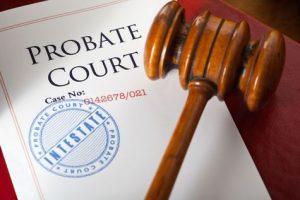 In a perfect world, people would plan ahead to be able to handle their affairs and provide for their family if they become incapacitated. However, many people do not do that and some adults are forced into a situation where they need a guardian to help them. If you are facing this issue with a loved one, having an experienced Chicago Guardianship Attorney by your side is critical to ensure that all legal steps are taken.
In a perfect world, people would plan ahead to be able to handle their affairs and provide for their family if they become incapacitated. However, many people do not do that and some adults are forced into a situation where they need a guardian to help them. If you are facing this issue with a loved one, having an experienced Chicago Guardianship Attorney by your side is critical to ensure that all legal steps are taken.
Guardianship is an arrangement where the court appoints someone to manage a person’s property, personal needs, or both. The guardian can be a parent, relative, third party nonprofit group or an attorney. In some cases, a guardian can be appointed temporarily to accomplish a specific task, while in others, it is permanent.
If a person does not have a valid Power of Attorney, or their agent is unwilling to serve, the court may need to appoint a guardian for them. In order to do that, a petition for guardianship must be filed with the courts. The requesting party must also provide a medical report from a physician. The court will evaluate the requesting individual’s condition and will determine if a guardianship is necessary.
A family law attorney will help you prepare a petition for a temporary or permanent guardianship, and file it with the appropriate court. The presiding judge will review the case and will ask questions regarding the requesting individual’s condition. The presiding judge will appoint a guardian if they feel the guardianship is necessary.
It is important to note that a guardian is responsible for caring for the ward’s financial and emotional needs, which can be time consuming and emotionally draining. Therefore, the requesting party must be able to clearly demonstrate their willingness to take on this responsibility as honestly and fairly as possible. In most cases, the requesting party will need to answer some questions about their family, work schedule, and finances.
After the guardian has been named, annual reports will need to be submitted to the court detailing their administration of the ward’s estate. If the guardian is unable to fulfill their duties, the court may terminate their guardianship.
A guardianship is an effective legal solution for families that are concerned about their aging or disabled loved ones. If you are facing this issue, it is crucial to consult with an experienced Chicago Guardianship Attorney at your earliest convenience. To learn more about your options, contact Davis & Associates today. We can answer any questions that you may have and make recommendations that will best protect your family members.
 beneficiary(s).
beneficiary(s). After the closing arguments have been made, the judge will formally enter a death sentence, said an
After the closing arguments have been made, the judge will formally enter a death sentence, said an 